How the FCA Ban on Crypto-Derivatives Impacts Cryptocurrency Businesses?
A guest post by Claire Cummings from Cummings Pepperdine
SPEEDREAD
In October, the FCA announced a ban on the sale of crypto-derivatives and exchange-traded notes...

Identify suspicious transactions, prevent fraud & comply with AML, KYC & CFT regulations
Forensically analyze cryptocurrency transactions, track stolen funds, and investigate crime

Perform due diligence, flag risky transactions & generate risk reports

Training and certification for compliance & investigation teams
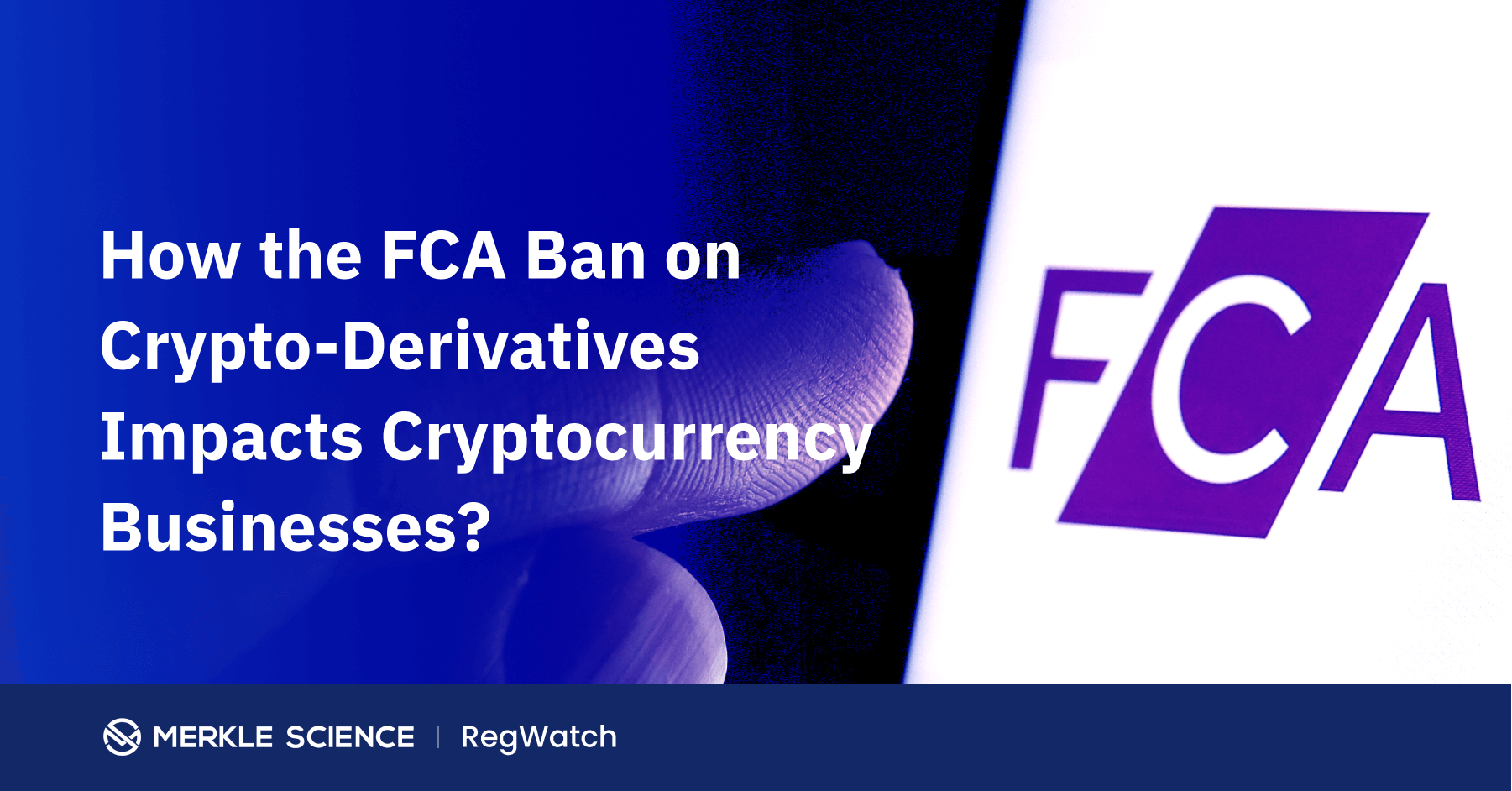
In October, the FCA announced a ban on the sale of crypto-derivatives and exchange-traded notes...

Regulators around the world are introducing increasingly stringent and specific laws to fight crypto crime. Whilst the global volume of illicit crypto-based...
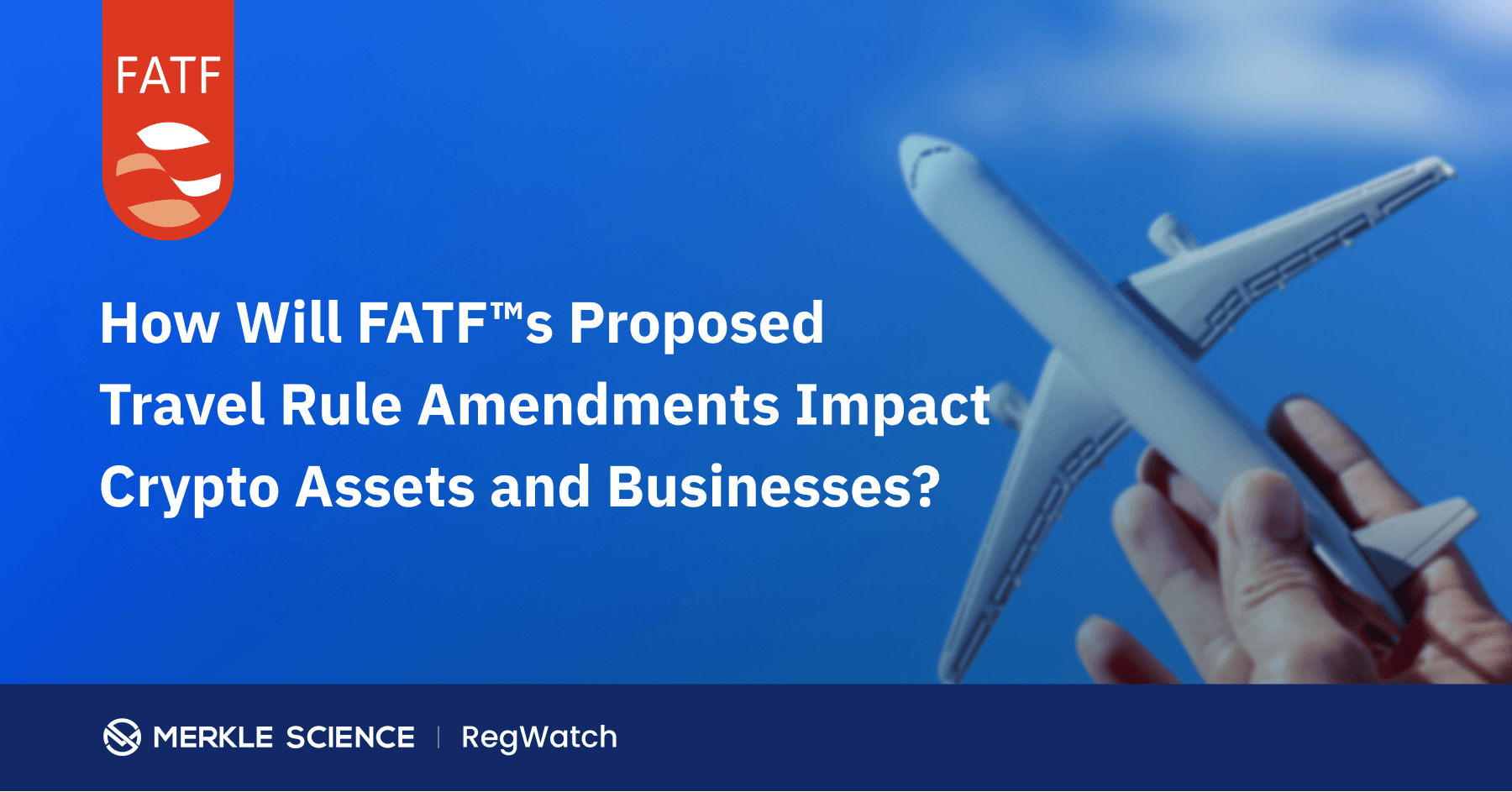
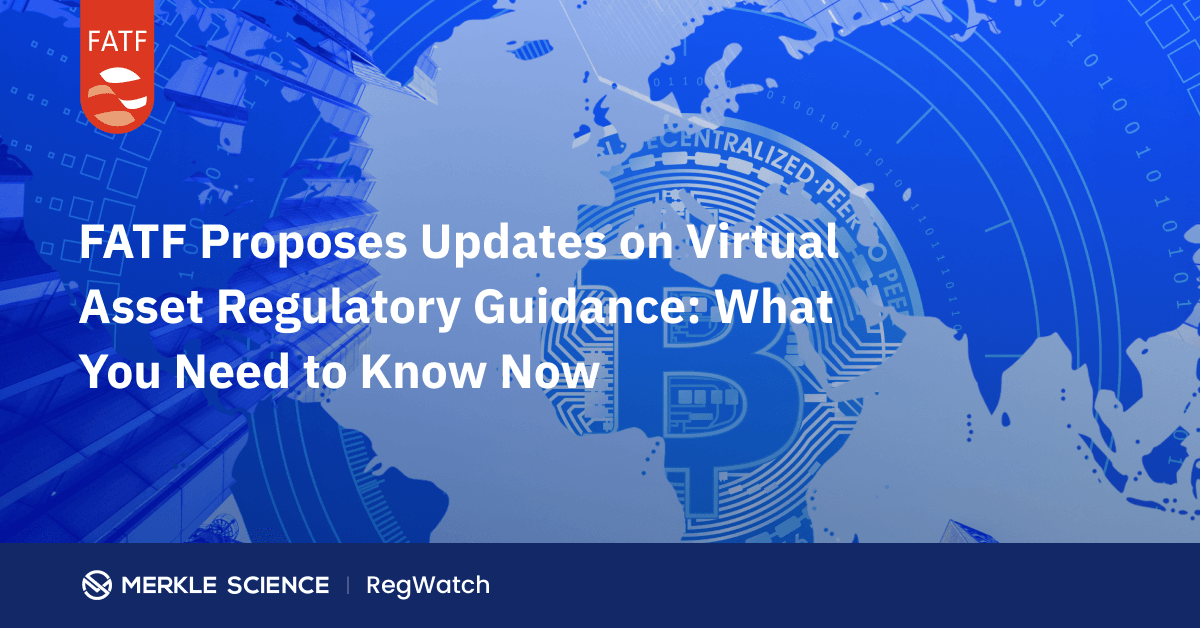
In an on-going effort to set international standards that aim to prevent illegal activities, the Financial Action Task Force (FATF) released a public consultation on...

On Thursday, April 15, 2021, the US Treasury Department imposed sanctions onsixteen entities and sixteen individualsfor acting on behalf of the Russian network that...
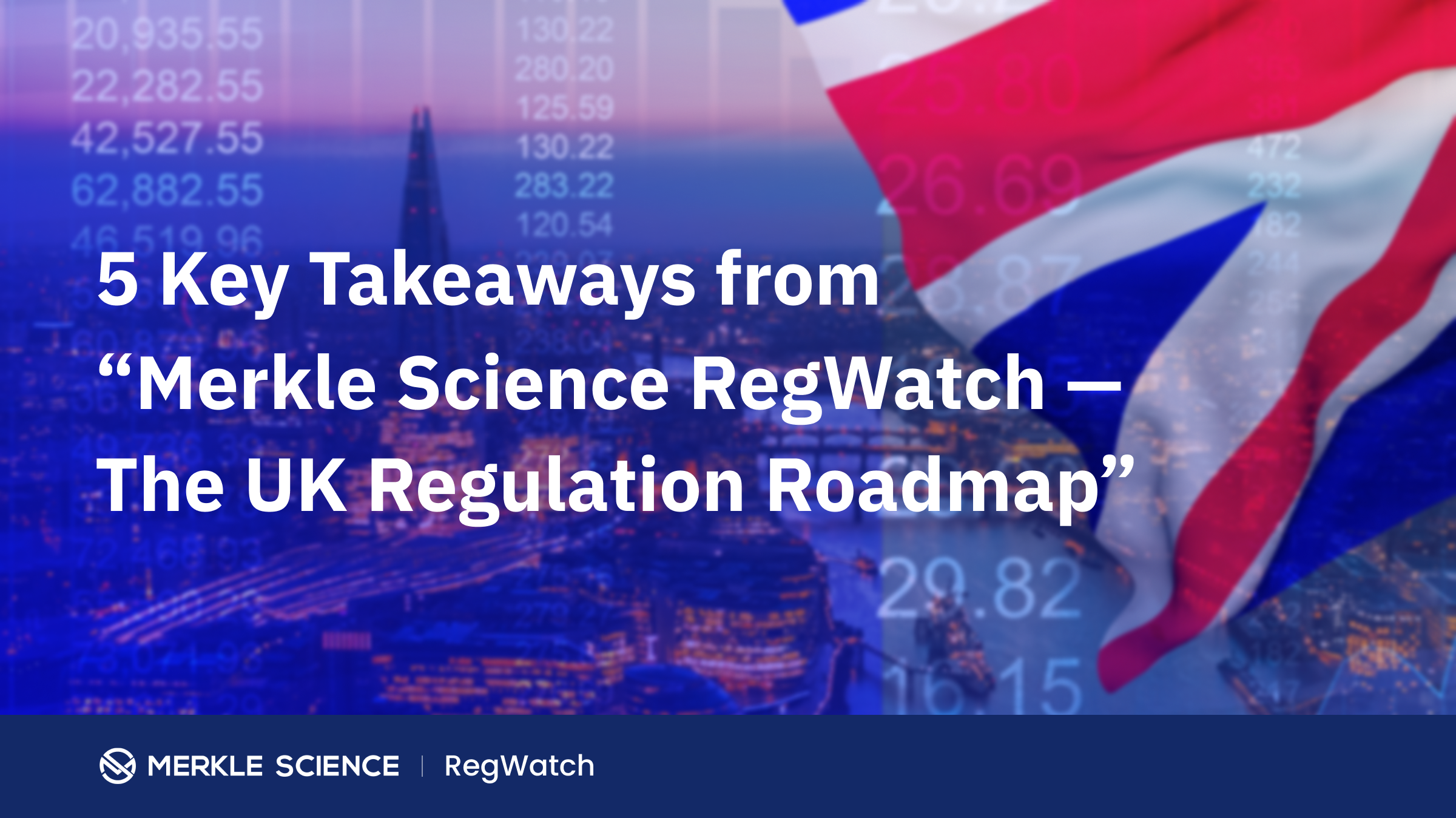
According to Merkle Science’s own data, between 2016 and 2019, transaction volumes between illicit actors and UK-headquartered VASPs increased by 9.5 fold. In addition, out of the 23 virtual asset exchanges headquartered in the UK, 14 of them (60%) have strict compliance already in place and do not allow customers to transact on their platform without proper KYC.
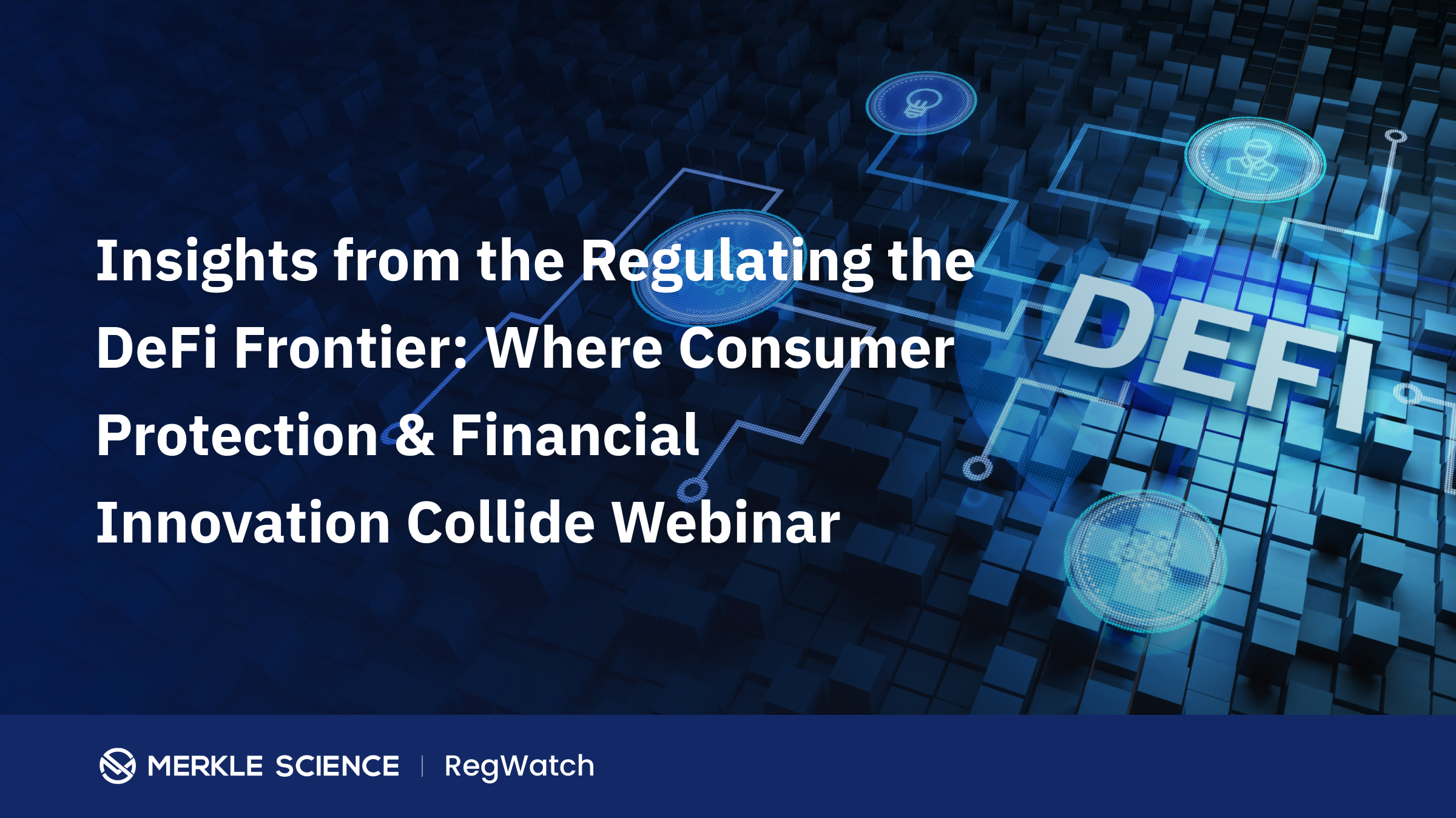
With increasingly great attention placed on DeFi and institutional finance moving into the space, our panelists Matthew Homer (Exec. In Residence, Nyca Partners & Former Executive Deputy Superintendent, Research & Innovation, New York State Department of Financial Services ), Jacob Yunger (Director Financial Innovation, FINRA), Philip W. Raimondi (Sr. Assistant General Counsel, CFTC), and our very own Mary Beth Buchanan (EVP Americas & Global Chief Legal Officer, Merkle Science) discussed the risks and regulatory challenges surrounding DeFi with Ian Taylor ( Executive Director, CryptoUK).
Merkle Science believes in smart regulation around DeFi. Merkle Science recently published “Diving into DeFi: Fundamentals from the Financial Frontier” — a comprehensive primer of the current DeFi landscape especially well-suited for those who have started navigating DeFi, that gives an overview of the types of DeFi platforms, emerging trends, regulatory concerns, as well as risks individuals should be aware of when engaging with the ecosystem.
.png)
The growth in the crypto market has fuelled U.S. regulators to increase regulatory oversight on the crypto industry. To this end on 9 August 2021, the Securities and Exchange Commission (SEC) issued a cease-and-desist order imposing a $10.4 million USD fine against crypto exchange Poloniex for operating an “unregistered online digital asset exchange”.
.png)
As the crypto industry and traditional financial industries continue to converge, Merkle Science seeks to create an ecosystem that enables safe cryptocurrency transactions. After our 16 July 2021, update announcing the extension of our coin coverage to 200 new tokens, we are proud to announce that Merkle Science has further extended its coin coverage to include Dogecoin (DOGE). This move is part of our roadmap to exponentially expand coin coverage by the end of 2021. Our rapidly-expanding universe of covered crypto assets on our risk and intelligence platform provides us with broader data sets that will improve our capacity to monitor transactional activities. Additionally, it will enhance the platform’s ability to identify addresses linked to previously undetected criminal activity.
.png)
Decentralized finance (DeFi) is the confluence of blockchain technology and financial applications. It enables the execution of financial transactions through decentralized applications (dApps) that are essentially, services built upon public blockchains. Through smart contracts, DeFi looks to increase efficiency and accuracy by replacing intermediaries with products such as Automated Market Makers (AMMs).